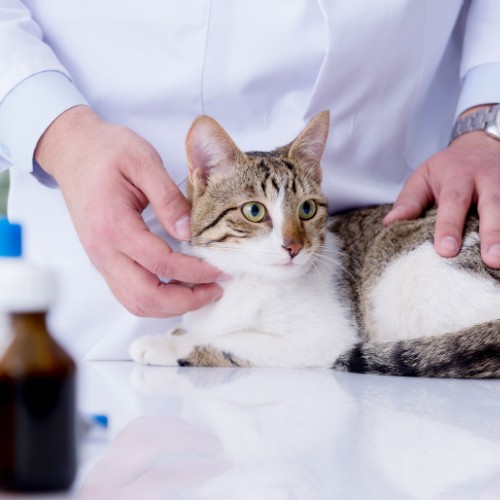Pet Vaccination atAnimal Hospital of Tiffin
Vaccinations are a vital part of your pet’s overall health care, protecting them from a variety of serious diseases. At Animal Hospital of Tiffin, we offer comprehensive vaccination services tailored to your pet’s unique needs. Our experienced veterinarian will work with you to develop a customized vaccination schedule, ensuring your pet receives the right vaccines at the right time.
Understanding the Importance of Vaccinations
Vaccinations are essential in preventing illnesses that can be life-threatening or lead to long-term health complications. By vaccinating your pet, you not only protect them but also help prevent the spread of disease to other animals and, in some cases, to humans.
Vaccines work by stimulating your pet’s immune system to produce antibodies against specific diseases. This preparation helps your pet’s body recognize and fight off infections more effectively if they are exposed to these diseases in the future.
Core Vaccines Typically Include:
- Rabies: Protects against a deadly virus that can be transmitted to humans.
- Distemper: Prevents a highly contagious and often fatal disease that affects the respiratory, gastrointestinal, and nervous systems.
- Parvovirus: Guards against a highly contagious virus that can cause severe vomiting and diarrhea, especially in young pets.
Non-Core Vaccines Based on Lifestyle and Risk Factors:
- Bordetella: Protects against kennel cough, a common respiratory infection.
- Lyme Disease: Prevents a bacterial infection transmitted by ticks, which can lead to long-term health issues.
- Influenza: Helps protect against canine influenza virus.
Vaccinations for Young Pets: Starting Early for a Healthy Life
Vaccinations are essential for young pets, as they are more susceptible to diseases. Their immune systems are still developing, and early vaccinations provide the necessary protection during this vulnerable stage.
Vaccination Schedule May Include:
Typically start at 6-8 weeks of age, with booster shots given every 3-4 weeks until about 16 weeks of age.
These are essential to ensure that the initial vaccines provide long-lasting protection.
After the initial series, your pet will require yearly or every three-year vaccinations to maintain immunity against certain diseases.
When to Bring Your Pet for Vaccinations
Following a regular vaccination schedule is essential to maintain your pet’s immunity. Here are some key times to bring your pet to our clinic:
- Young Pets: Begin vaccinations at 6-8 weeks of age.
- Booster Shots: Follow-up vaccinations every 3-4 weeks until about 16 weeks of age.
- Annual Check-Ups: Regular visits to ensure that all vaccines are up to date.
If you’re unsure about your pet’s vaccination status or need to start a vaccination schedule, our team is here to help. We will review your pet’s medical history and create a plan that meets their specific needs. Contact us today to schedule a consultation and keep your pet protected.
Benefits of Vaccinating Your Pet
- Disease Prevention: Protects your pet from common and potentially fatal diseases.
- Public Health: Helps prevent the spread of diseases, such as rabies, that can affect humans.
- Cost-Effective Care: Preventing disease through vaccination is far more affordable than treating a serious illness after it occurs.
- Peace of Mind: Knowing your pet is protected allows you to enjoy more worry-free moments with them.
At Animal Hospital of Tiffin, we emphasize the importance of timely vaccinations as a cornerstone of preventive care. We’re here to ensure that your pet remains healthy and protected throughout their life.
Why Choose Animal Hospital of Tiffin for Pet Vaccinations?
At Animal Hospital of Tiffin, we are dedicated to providing personalized care that focuses on your pet’s well-being. Our vaccination services include:
Tailored to your pet’s age, breed, and lifestyle.
We provide guidance and support throughout your pet’s life to ensure they receive the best preventive care.
Our veterinarian and staff are skilled in administering vaccines and managing your pet’s health.
Protect your pet’s health with regular vaccinations at Animal Hospital of Tiffin. Our team is here to provide the care and attention your pet needs to stay healthy. Contact us today to schedule an appointment or to learn more about our vaccination services.


